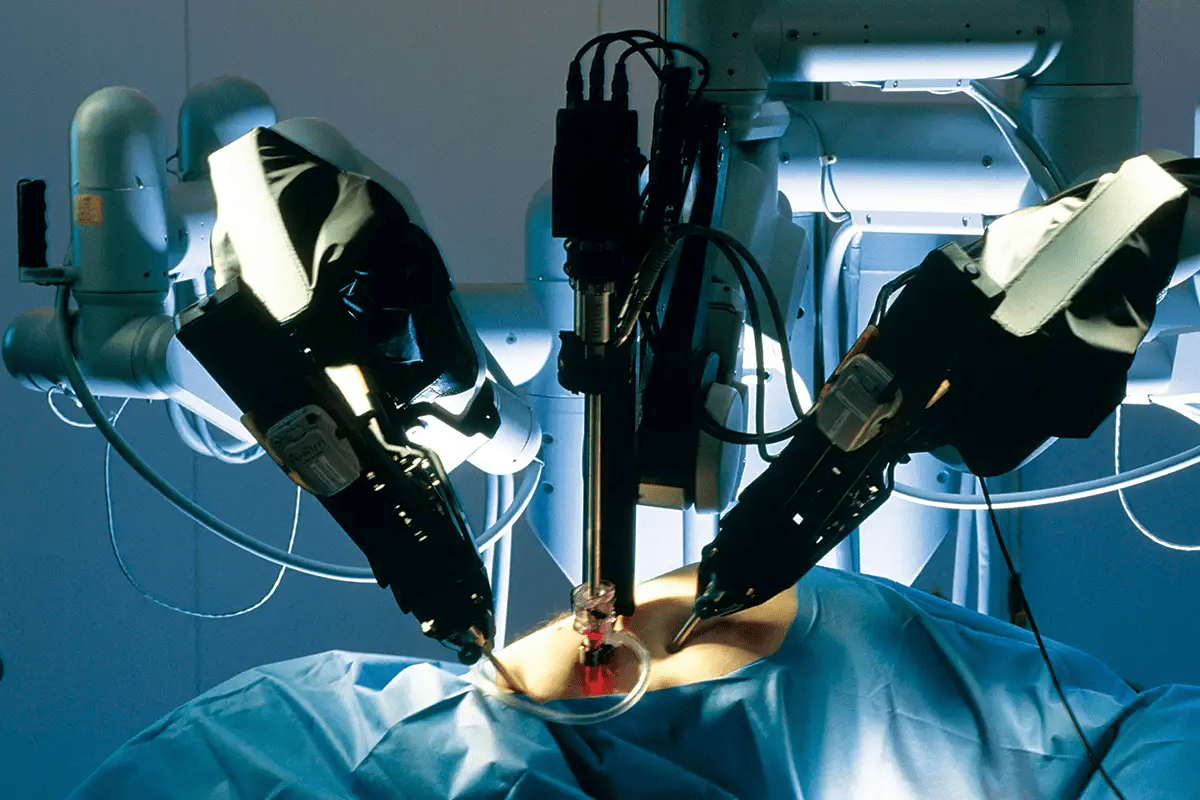Last Updated on November 26, 2025 by Bilal Hasdemir

Autoimmune diseases are becoming more common worldwide. This calls for effective management and treatment options. At Liv Hospital, we focus on giving complete care to those with autoimmune disorders.
We use advanced treatments like immunosuppressive drugs and biologic agents. Our team works with patients to create treatment plans that fit their needs.
We combine patient care with the newest medical tech. This helps patients manage their condition better and live a better life.
Key Takeaways
- Comprehensive care for autoimmune diseases is key for effective management.
- Advanced therapies, including immunosuppressive medications and biologic agents, are available.
- Personalized treatment plans are developed in collaboration with patients.
- Patient-focused care is combined with the latest medical technology.
- Effective management of autoimmune diseases improves quality of life.
Understanding Autoimmune Diseases and Their Impact
Exploring autoimmune diseases shows how vital it is to grasp their impact. These diseases happen when the body’s immune system attacks its own cells and tissues. This can cause many different health issues, each with its own set of problems.
What Causes Autoimmune Diseases
The exact reasons for autoimmune diseases are not fully understood. Yet, research points to a mix of genetic, environmental, and hormonal factors. For example, some people might be more likely to get these diseases because of their genes. Environmental factors, like infections or chemicals, can also start an autoimmune response.
More than 80 autoimmune diseases have been found worldwide, and their numbers are growing. This rise has led to more research to find the causes and better treatments. For instance, studies suggest that some diseases are more common in women, possibly due to hormones.
Common Types of Autoimmune Conditions
Autoimmune diseases can affect different parts of the body. Some common ones include:
- Rheumatoid arthritis, which affects the joints
- Lupus, a condition that can affect multiple organs
- Multiple sclerosis, which impacts the central nervous system
- Type 1 diabetes, resulting from the immune system attacking insulin-producing cells
Each disease needs a specific management plan. Knowing the exact disease is key to finding the right treatment.
The Rising Global Incidence of Autoimmune Disorders
Autoimmune diseases are becoming more common worldwide. This is a big challenge for healthcare systems. Studies show that the number of people with these diseases is going up, with some conditions seeing a big increase in recent years.
| Autoimmune Disease | Prevalence | Trend |
|---|---|---|
| Rheumatoid Arthritis | 1% of global population | Increasing |
| Lupus | 40 per 100,000 | Stable |
| Multiple Sclerosis | 85 per 100,000 | Increasing |
As more people get autoimmune diseases, finding new treatments is critical. Options like stem cell therapy are showing promise for some patients.
“The increasing prevalence of autoimmune diseases necessitates a multifaceted approach to treatment, incorporating both conventional and innovative therapies.”
Diagnosing Autoimmune Conditions: The First Step to Treatment
Getting a correct diagnosis is key to treating autoimmune diseases. Finding out what’s wrong involves many tests and working with experts. This is because these diseases are complex.
Common Diagnostic Tests and Procedures
Doctors use several methods to diagnose autoimmune diseases. They look at your medical history, do a physical check-up, and run tests. Some tests include:
- Blood tests to find specific antibodies linked to autoimmune diseases
- Imaging studies like X-rays, ultrasound, or MRI to see if organs are damaged
- Biopsy of affected tissues to check for cell changes
These tests help doctors figure out the exact disease and how severe it is.
Working with Specialists for Accurate Diagnosis
Getting help from specialists is very important for a right diagnosis. Rheumatologists, immunologists, and others know how to read test results. They can spot things that regular doctors might miss.
“The diagnosis of autoimmune diseases is often challenging and requires a high degree of clinical suspicion and expertise.”
Working with specialists means you get a detailed check-up and the right diagnosis. This is vital for creating a good treatment plan.
Understanding Your Specific Autoimmune Condition
After getting a diagnosis, it’s important to know about your condition. This includes:
| Condition | Common Symptoms | Typical Diagnostic Tests |
|---|---|---|
| Rheumatoid Arthritis | Joint pain, swelling, stiffness | Rheumatoid factor, anti-CCP antibodies, joint imaging |
| Lupus | Butterfly rash, joint pain, fatigue | ANA test, anti-dsDNA antibodies, complement levels |
Knowing about your condition helps you make better choices about your treatment. It’s empowering.
By teaming up with healthcare providers and specialists, patients can get through the diagnostic process well. They can then create a treatment plan that fits their needs.
Comprehensive Autoimmune Treatment Options
Managing autoimmune diseases requires a multi-faceted approach. Treatment plans often include medications, lifestyle changes, and alternative therapies.
First-Line Medications and Their Functions
First-line treatments include corticosteroids and nonsteroidal anti-inflammatory drugs (NSAIDs). Corticosteroids, like prednisone, reduce inflammation and suppress the immune system. NSAIDs, such as ibuprofen, ease pain and inflammation.
For example, methotrexate is often used to slow rheumatoid arthritis progression. Recent advancements in treatment are highlighted in press releases, like argenx’s presentation at the 2025 AANEM Annual.
Immunosuppressive Therapies
Immunosuppressive therapies are used for severe autoimmune conditions. These include drugs like azathioprine, cyclophosphamide, and cyclosporine. They reduce inflammation and prevent tissue damage by suppressing the immune system.
These therapies are used in treating lupus or multiple sclerosis. The goal is to control the disease without harmful side effects.
Anti-inflammatory Approaches
Anti-inflammatory approaches are key in managing autoimmune diseases. Medications and strategies beyond NSAIDs and corticosteroids are used. For example, biologic agents target specific inflammation molecules.
An anti-inflammatory diet is also important. Diets rich in omega-3s, antioxidants, and fiber reduce inflammation. Lifestyle changes, like exercise and stress management, support these dietary changes.
Biologic Therapies: Advanced Treatment for Autoimmune Disease
Biologic therapies are key in treating autoimmune diseases. They offer hope to those who haven’t seen results from usual treatments. These treatments aim at specific parts of the immune system, making them more precise.
TNF Inhibitors and Their Applications
TNF inhibitors are used to treat many autoimmune diseases. These include rheumatoid arthritis, Crohn’s disease, and psoriasis. They block tumor necrosis factor (TNF), a protein that causes inflammation.
By reducing TNF, these inhibitors lower inflammation and slow disease growth. Medications like etanercept, infliximab, and adalimumab have greatly helped patients.
B-Cell and T-Cell Targeted Therapies
B-cell and T-cell targeted therapies are also vital. They focus on immune cells that cause autoimmune diseases. By targeting these cells, they help balance the immune system.
Rituximab is a B-cell targeted therapy for conditions like rheumatoid arthritis. It reduces inflammation by removing B-cells.
Interleukin Inhibitors
Interleukin inhibitors target proteins involved in the immune response. Some of these proteins cause inflammation. By blocking them, these therapies reduce inflammation and disease activity.
Medications targeting IL-17 and IL-23 are used for psoriasis and ankylosing spondylitis. They have shown great success in clinical trials, improving symptoms and outcomes.
In summary, biologic therapies like TNF inhibitors, B-cell and T-cell targeted therapies, and interleukin inhibitors have changed how we treat autoimmune diseases. They offer targeted and effective treatments, greatly improving patients’ lives worldwide.
Lifestyle Modifications to Support Healing
To help manage autoimmune diseases, making lifestyle changes is key. Choosing the right diet, exercising, managing stress, and getting enough sleep can make a big difference.
Anti-inflammatory Diet Approaches
An anti-inflammatory diet is important for those with autoimmune diseases. It involves eating foods that fight inflammation, like fatty fish, leafy greens, and whole grains.
- Foods to Emphasize: Fatty fish (salmon, sardines), leafy greens (spinach, kale), whole grains (quinoa, brown rice), and nuts (walnuts, almonds).
- Foods to Avoid: Processed foods, sugary drinks, refined carbohydrates, and saturated fats.
Following an anti-inflammatory diet can help lessen autoimmune symptoms. It can also improve overall health.
| Food Group | Recommended Foods | Foods to Avoid |
|---|---|---|
| Proteins | Fatty fish, lean meats, legumes | Processed meats, high-fat dairy |
| Grains | Whole grains, quinoa | Refined grains, sugary cereals |
Exercise and Stress Management Techniques
Regular exercise and stress management are key for managing autoimmune diseases. Exercise can lower inflammation and boost health. Stress management can protect the immune system from stress’s harm.
Recommended Exercises: Yoga, swimming, brisk walking, and cycling are good choices.
- Stress Management Techniques: Meditation, deep breathing, and mindfulness can reduce stress.
Sleep Optimization for Immune Function
Sleep is vital for immune function and health. For those with autoimmune diseases, good sleep helps manage inflammation and repair tissues.
Sleep Hygiene Practices: A regular sleep schedule, a sleep-friendly environment, and avoiding screens before bed can enhance sleep quality.
By making these lifestyle changes, people with autoimmune diseases can actively manage their condition. This can greatly improve their quality of life.
Complementary Approaches to Treat Autoimmune Disease
Adding complementary therapies to your treatment plan can help manage autoimmune diseases. These approaches can boost your overall well-being and possibly lead to better treatment results.
Evidence-Based Supplements and Herbs
Some supplements and herbs may support autoimmune disease treatment. Omega-3 fatty acids have anti-inflammatory effects that could lessen symptoms. Turmeric, with curcumin, also has anti-inflammatory properties.
Always talk to a healthcare provider before using any supplements or herbs. They can interact with medications or cause problems in some people.
Mind-Body Therapies
Mind-body therapies like meditation and yoga can help manage stress. Stress is a common trigger for autoimmune flare-ups. These practices can relax you, improve your mental health, and enhance your quality of life.
Research shows that regular mind-body therapy can reduce inflammation and boost immune function. This can be beneficial for people with autoimmune conditions.
Functional Medicine Approaches
Functional medicine aims to find and fix the disease’s root causes, not just treat symptoms. It might include changing your diet, nutritional support, and lifestyle changes based on your needs.
By focusing on gut health, nutrient deficiencies, and environmental toxins, functional medicine can work alongside traditional treatments. It may lead to better outcomes for autoimmune diseases.
Cutting-Edge Research: Can You Get Rid of Autoimmune Disease?
New treatments for autoimmune diseases are being explored. Researchers aim to manage symptoms and possibly cure these conditions. This is a big step forward in understanding and treating these diseases.
RNA Interference Therapies
RNA interference (RNAi) therapies are a new way to treat autoimmune diseases. They work by silencing genes that cause these conditions. This method targets the root cause, making it a promising treatment.
RNAi therapies might have fewer side effects than current treatments. They can also focus on specific disease pathways. But, there are challenges like delivering RNAi molecules to the right places in the body.
Stem Cell Transplantation Procedures
Stem cell transplantation is a new treatment for severe autoimmune diseases. It involves replacing the immune system with new stem cells. This can reset the immune system.
There are two main types of stem cell transplantation. Autologous uses the patient’s own stem cells, while allogenic uses donor cells. Each type has its own risks and considerations. This treatment is usually for severe cases due to its complexity.
Microbiome-Based Treatments
The human microbiome is important for the immune system. Changes in the microbiome can lead to autoimmune diseases. Treatments aim to balance the microbiome to reduce symptoms.
These treatments include probiotics, prebiotics, and fecal microbiota transplantation. Research is ongoing to understand their effects on autoimmune diseases. While promising, more studies are needed.
Immune Tolerance Restoration Approaches
Another area of research is restoring immune tolerance. This means teaching the immune system to accept the body’s own tissues. Various strategies are being explored, including antigen-specific therapies and immunomodulatory drugs.
Restoring immune tolerance could lead to long-term remission or even a cure. These approaches are experimental but hold great promise for the future.
Research is moving towards more personalized treatments for autoimmune diseases. While we can’t yet “get rid” of these diseases, new treatments offer hope for better management and outcomes.
Creating a Personalized Autoimmune Treatment Plan
Personalized treatment plans are a new way to manage autoimmune diseases. They focus on what each patient needs. Every patient’s condition is different, so a plan that fits them best is key.
Assembling Your Healthcare Team
Starting with a good healthcare team is the first step. This team should have doctors like rheumatologists and immunologists. Also, include primary care physicians and other experts like physical therapists and nutritionists.
It’s important for patients to work with their doctors to make a treatment plan. This plan should cover all aspects of the disease. It should also consider the patient’s lifestyle and diet.
| Healthcare Professional | Role in Treatment Plan |
|---|---|
| Rheumatologist | Specializes in diagnosing and treating autoimmune diseases affecting joints and muscles. |
| Immunologist | Focuses on immune system disorders, providing insights into immune-related aspects of autoimmune diseases. |
| Primary Care Physician | Coordinates overall care, referring patients to specialists as needed and monitoring general health. |
| Nutritionist | Helps develop dietary plans that can help manage symptoms and support overall health. |
Monitoring Progress and Adjusting Treatment
Keeping an eye on how the treatment is working is key. We use tests and patient feedback to check progress.
Adjusting the treatment plan as needed is important. This might mean changing medications or making lifestyle changes based on how the patient is doing.
Managing Medication Side Effects
Handling side effects from medications is a big part of the plan. We work with patients to catch any problems early and make changes as needed.
By talking openly and regularly checking the plan, we can reduce side effects. This makes the treatment more effective.
- Regularly review and adjust medications to minimize side effects.
- Monitor patient feedback and adjust the treatment plan according to it.
- Educate patients on possible side effects and how to handle them.
Conclusion: Living Well While Managing Autoimmune Disease
Managing autoimmune diseases is key to living an active and fulfilling life. The right treatment and lifestyle changes can help manage symptoms and improve life quality. We’ve looked at treatments like medications, biologic therapies, and lifestyle changes for those with autoimmune diseases.
Handling autoimmune disease needs a full approach. Working with healthcare pros and keeping up with new research and treatments is important. For example, new developments in voclosporin can help in creating a personalized management plan.
Living with autoimmune disease has its challenges, but the right support can help. By focusing on managing the disease and sticking to treatment plans, people can achieve better health and happiness.
FAQ
What are autoimmune diseases and how do they occur?
Autoimmune diseases happen when the body’s immune system attacks its own cells and tissues. The exact reasons are not fully known. But, it’s thought that genetics, environment, and hormones play a role.
How are autoimmune diseases diagnosed?
Doctors use a patient’s medical history and physical exam to diagnose autoimmune diseases. They also do blood tests, imaging, and biopsies. Specialists like rheumatologists and immunologists are key for accurate diagnosis.
What are the common treatment options for autoimmune diseases?
Treatments include first-line meds, immunosuppressives, anti-inflammatories, and biologics. The right treatment depends on the disease, its severity, and the person’s health.
How do biologic therapies work in treating autoimmune diseases?
Biologic therapies target immune system molecules. They reduce inflammation and slow disease progression. This helps manage the immune system.
Can lifestyle modifications help manage autoimmune diseases?
Yes, changes like an anti-inflammatory diet and stress management can help. They support healing and manage symptoms.
Are there any complementary approaches that can help treat autoimmune diseases?
Yes, approaches like supplements, mind-body therapies, and functional medicine may help. But, always talk to a doctor before trying new therapies.
What are the latest advances in autoimmune disease research?
New research includes RNA interference, stem cell transplants, and microbiome treatments. These could change how we treat autoimmune diseases.
How can I create a personalized treatment plan for my autoimmune disease?
To create a personalized plan, build a healthcare team and monitor progress. Work closely with your doctors to manage side effects and adjust treatments.
Can autoimmune diseases be cured?
There’s no cure for most autoimmune diseases yet. But, treatments can manage symptoms and slow disease progression. Ongoing research offers hope for better treatments.
How can I manage my autoimmune disease effectively?
Effective management combines medical treatment, lifestyle changes, and complementary approaches. Stay informed, work with your healthcare team, and stay positive to manage your condition well.
What are autoimmune diseases and how do they occur?
Autoimmune diseases happen when the body’s immune system attacks its own cells and tissues. The exact reasons are not fully known. But, it’s thought that genetics, environment, and hormones play a role.
How are autoimmune diseases diagnosed?
Doctors use a patient’s medical history and physical exam to diagnose autoimmune diseases. They also do blood tests, imaging, and biopsies. Specialists like rheumatologists and immunologists are key for accurate diagnosis.
What are the common treatment options for autoimmune diseases?
Treatments include first-line meds, immunosuppressives, anti-inflammatories, and biologics. The right treatment depends on the disease, its severity, and the person’s health.
How do biologic therapies work in treating autoimmune diseases?
Biologic therapies target immune system molecules. They reduce inflammation and slow disease progression. This helps manage the immune system.
Can lifestyle modifications help manage autoimmune diseases?
Yes, changes like an anti-inflammatory diet and stress management can help. They support healing and manage symptoms.
Are there any complementary approaches that can help treat autoimmune diseases?
Yes, approaches like supplements, mind-body therapies, and functional medicine may help. But, always talk to a doctor before trying new therapies.
What are the latest advances in autoimmune disease research?
New research includes RNA interference, stem cell transplants, and microbiome treatments. These could change how we treat autoimmune diseases.
How can I create a personalized treatment plan for my autoimmune disease?
To create a personalized plan, build a healthcare team and monitor progress. Work closely with your doctors to manage side effects and adjust treatments.
Can autoimmune diseases be cured?
There’s no cure for most autoimmune diseases yet. But, treatments can manage symptoms and slow disease progression. Ongoing research offers hope for better treatments.
How can I manage my autoimmune disease effectively?
Effective management combines medical treatment, lifestyle changes, and complementary approaches. Stay informed, work with your healthcare team, and stay positive to manage your condition well.
References
WebMD. Autoimmune diseases. https://www.webmd.com/a-to-z-guides/autoimmune-diseases
National Center for Biotechnology Information (PMC). Autoimmune diseases refractory to corticosteroids and immunosuppressants. https://pmc.ncbi.nlm.nih.gov/articles/PMC4061980/
Global Autoimmune Institute. The Spectrum of Autoimmune Disease Treatments. https://www.autoimmuneinstitute.org/the-spectrum-of-autoimmune-disease-treatments/
American Association of Immunologists (Immunology Explained). Treatments for Autoimmune Disorders. https://immunologyexplained.aai.org/topics/autoimmune-disorders/treatments-for-autoimmune-disorders








